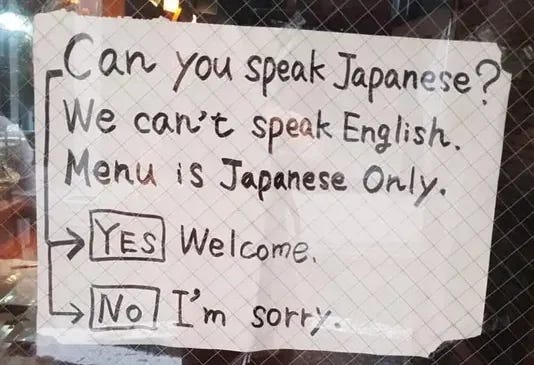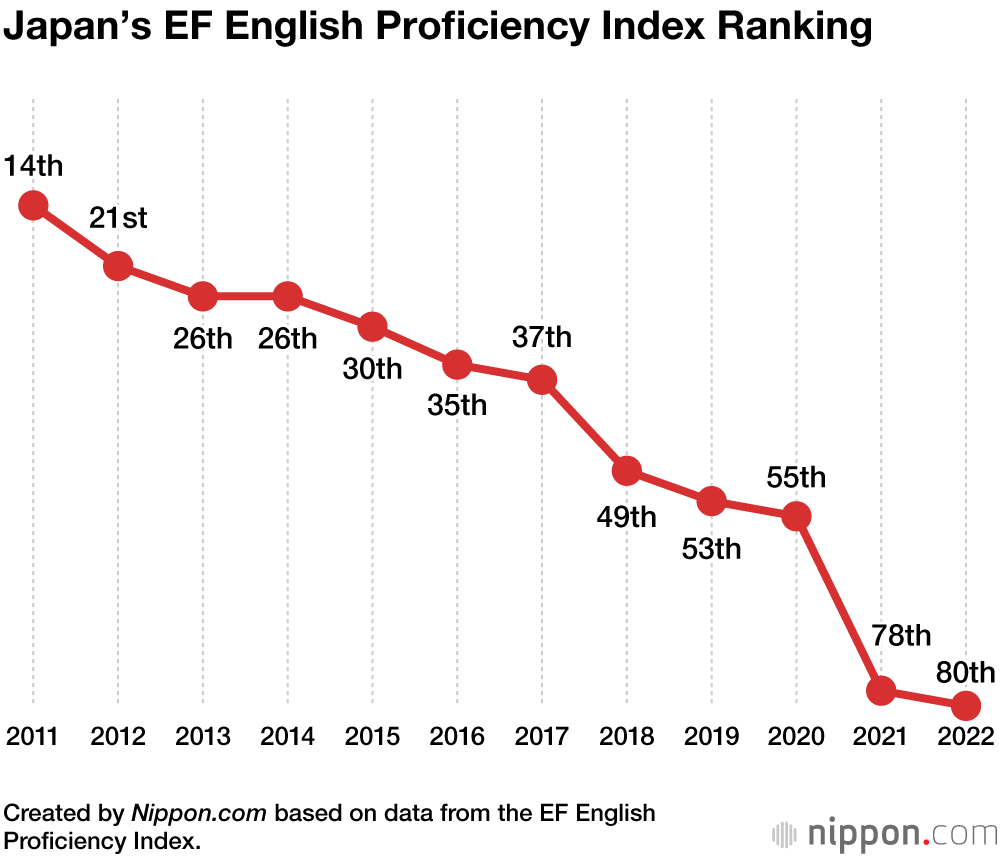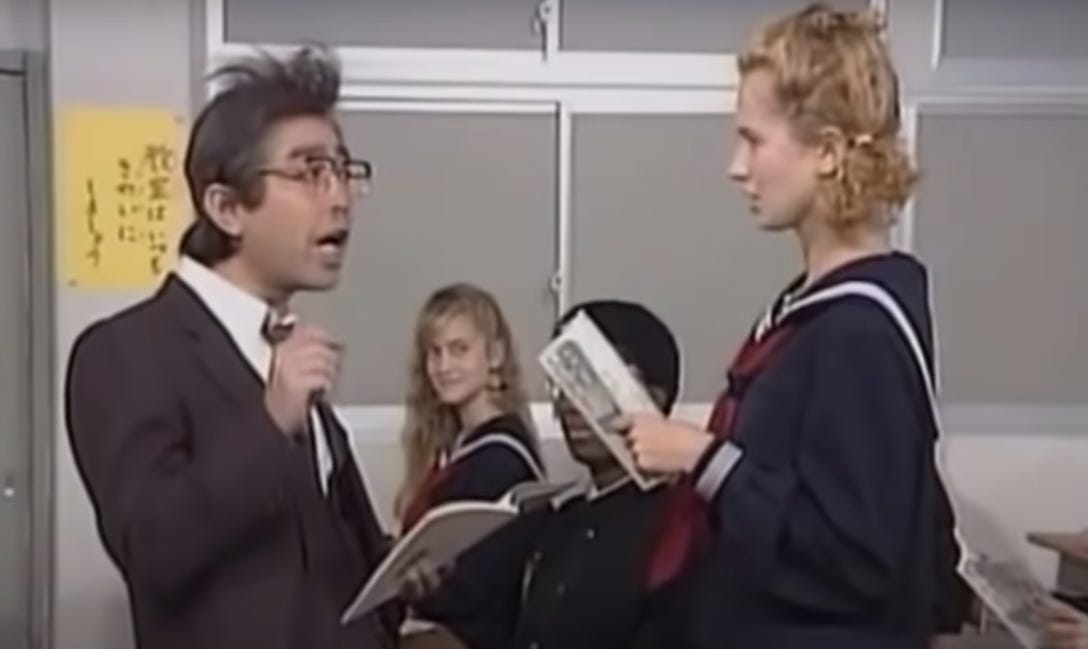Why Japanese People Still Can't Speak English
Surprisingly, almost for the same reasons why you don't speak Japanese.
Foreign Perspectives is a mix of free and paid content. Certain articles such as these are exclusively for paid subscribers. If you enjoy the work I do, please consider upgrading to a monthly or yearly subscription. Your support is greatly appreciated and ensures that this Substack can continue to deliver high quality pieces.
In the opening of My Fair Lady, Henry Higgins asks why the English can’t teach their children how to speak. If he happened to visit Japan for some reason, I’m sure the phonetics professor would also wonder why the Japanese can’t teach their children how to speak English either. After all, it’s the de facto lingua franca of the world, the lingo of global commerce, and often the default tongue even for people who speak a different language natively. English is such an integral part to modern society, you’d have to make an active attempt to avoid it.
Or you could be born in Japan. If you’ve ever visited this country, you’ll quickly become aware of the startling reality that English fluency is almost nonexistent. Out of all the countries recorded, the English Proficiency Index places Japan in last place at number 92 with neighboring South Korea even beating them at number 50. Vietnam, Bangladesh, Brazil, Malaysia, and others were all ranked higher. To be fair, China is only one spot above Japan at 91, but we’ll give them a pass considering how they basically own the entire world now. Doing that *without* prioritizing English language skills is almost its own achievement, probably because our CCP overlords are plotting a Mandarin takeover.
But what’s happening here in Japan? How could a country with so much soft power and economic influence be more or less removed from the Anglosphere when most neighboring Asian countries appear to be doing better? It’s a complicated picture and largely the result of a combination of factors that are unlikely to change anytime soon. From bad teaching methods to cultural barriers that to this day have never really gone away, here are a few reasons why most Japanese people don’t speak English.
English education in Japan sucks
For my fellow Americans, think back to your time in high school when you were forced to take Spanish classes. Apart from asking where the library is and half-hearted attempts at trying to wrap your head around a different word order, do you really remember anything your underpaid teacher taught you? Of course not. You had zero interest in being there and spent most of the time staring at the clock until the dismissal bell rang.
Now imagine doing that for about ten years and you basically have English education in Japan. In fact, it’s arguably even worse. For as ineffective as your foreign language classes probably were, I’m assuming you had a qualified instructor who was a native speaker or at the very least someone with enough professional fluency to teach the material. That’s the bare minimum, right? Not so over here in the Land of the Rising Sun.
There’s a famous sketch by the late comedian Ken Shimura parodying the average English class at a Japanese public school. In a hilarious reversal of roles, the “students” are all real native speakers of English and good ol’ Shimura-sensei is the witless Japanese instructor who insists on “correcting” their pronunciation. Obviously there’s a ton of exaggeration involved here, but the general premise isn’t that far off from reality. Instead of actually teaching the proper sounds of English, most students will end up speaking some garbled Japanified version.
By the time English education starts in Japan, which is around the 3rd grade of primary school, children have already internalized most sounds of their native language. There’s still time for more development, but that would require a teacher with a native or near-native accent for proper instruction. Since most Japanese teachers are simply relying on rote memorization and other ineffective methods from stiff textbooks while they also have to juggle a bunch of other subjects, you probably begin to understand why there’s little room for improvement.
“But what about all those foreigners who come to Japan to teach English?” you may ask. This subject itself is worthy of its own piece, but to make a long story short, very few of these people are actually qualified to teach much of anything. Most of them are hired as ALTs, or assistant language teachers. As their title implies, their job is to assist the actual instructor in the room. This mostly comes down to providing “native” examples of English speech. Some ALTs play a more active role than others, but “human tape recorder” and “dancing monkey” are some of the nicer epithets that get thrown around online.

Being an ALT typically only requires a BA and a pulse, so the pay is low and the work is repetitive. When you pair them with a Japanese teacher that barely knows how to speak the language themselves, you have an extremely ineffective education system that does nothing to improve anyone’s level of English. Naturally, there are certified English teachers in Japan who know the language and have the right qualifications, but that is unfortunately not what most kids in this country will grow up having. By the time they reach university where such educators would be more plentiful, they’ve already gone through a decade of terrible instruction that’s very hard to unlearn.
Learning English is tougher than you think for Japanese people

Some might disagree with me on this one, but I truly believe that learning English for a Japanese person is about as difficult as learning Japanese is for a native English speaker. Anyone who has been on either side of this knows how radically different grammar, word order, and pronunciation are between the two languages. Japanese and Chinese at least have somewhat of a shared written script and Japanese and Korean have near-identical grammar. Romance languages have their quirks, but they aren’t that hard to wrap your head around if you’re only familiar with English.
Japanese and English though are like oil and water. While the former has adopted tons of loanwords from the latter, you quickly realize that there’s often a vast gap between their original sounds and meaning. That’s just on a vocabulary level. Japanese people have to unlearn everything they know about the way they were raised speaking which is why English grammar is so alien to them. Writing is no picnic either. You might think kanji are difficult for foreign learners of Japanese, but remember that English has odd spellings, silent letters, weird letter combinations, and rules around capitalization.






